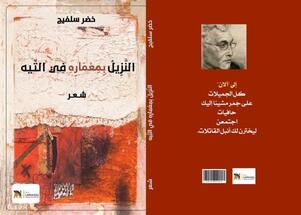-
Limits of Transitional Justice After the Fall of the Assad Regime (4 - 4)
-
Mechanisms for Implementing Transitional Justice in Future Syria

The transitional phase, after the fall of the Assad regime, faces many challenges related to the fate of the fallen system and how to hold its officials accountable, especially those who have stained their hands with the blood of the Syrian people and corrupted public funds. It also involves addressing immediate solutions necessary to secure the needs and safety of society. This phase encompasses various tasks, such as drafting a new constitution and legislations that guarantee human rights and citizenship, establishing an independent judiciary, free media, comprehensive development, and honest institutions to ensure security. The greatest threats come from ideological blindness on one side and sectarian intolerance on the other, which portend the emergence of explosive centers for sectarian, religious, or national conflicts, allowing violence to escalate and jeopardizing the entire democratic transition project amid chaos and civil strife.
The goal and methodology of transitional justice institutions in Syria is to strive for justice, address the legacy of human rights violations, and assist the Syrian people in transitioning in a direct, peaceful, and non-violent manner. This involves pursuing a dual goal through the judiciary: accountability for past crimes and preventing new crimes from occurring, based on a strategy that focuses on rebuilding a homeland for the future that includes all components of the Syrian people, founded on respecting human rights, democratic mechanisms, and the rule of law. From this perspective, the importance of building transitional justice institutions arises to address the remnants of the past, as one of the remedial recipes for dealing with the aftermath of the previous oppressive regime.
The forms of this justice vary according to the contexts that define them and the expected objectives. Its mechanisms typically focus on establishing truth-finding commissions regarding serious human rights violations and revealing them in detail to the public, or through judicial approaches and prosecuting offenders before local or international courts, or via providing material compensation (financial aid, social and educational and psychological and health services) and moral reparations (offering official apologies to victims and preserving memory), and remedying the damage inflicted on victims due to their tragedies and sufferings, or through enacting reforms that strengthen the state of institutions, consolidate the rule of law, and overcome the negatives and pressures of the past.
Here, one can address the issue of amnesty and its role in establishing national reconciliation, not to overshadow justice. Utilizing this path is necessary, but it cannot be general; rather, it must be limited and specific, used precisely to close files that have been resolved and reconciled, not a blanket "forgiveness of the past."
Numerous research groups operating in this field have identified the most prominent steps advised to follow, taking into consideration the specifics of each case in detailed and procedural matters. Files and documents held by judicial and security authorities must be secured to serve as a supporting source in the process of building the mechanisms to commence work.
Thus, during the transitional phase, many critical questions will occupy us in Syria, the most important of which are: What types of crimes and violations should be held accountable? What levels of responsibility are there? What nature of responsibility: is it criminal or civil? What time frames are needed for the accountability process?
Transitional justice relies on a set of mechanisms, including judicial mechanisms to pursue those who commit serious crimes and hold them accountable, as they bear personal/individual criminal responsibility for their criminal actions, and non-judicial mechanisms that support and complement judicial mechanisms, such as truth and reconciliation commissions, truth-finding commissions, remedying harm and/or compensating victims, reforming institutions, honoring the memory of victims, among others.
The work of the transitional justice institution can be divided into five axes:
1. A fund for compensating physical and material harm to affected citizens.
2. Establishing special courts independent from ordinary judiciary, a court in Damascus for major cases, and branch courts in every province to address crimes committed during the events. Judges in these courts should be known for their integrity, impartiality, and independence.
3. Forming commissions for civil peace and national reconciliation, comprising respected cultural, scientific, legal, artistic, religious, and social figures, to engage with areas that have experienced religious, sectarian, or national conflicts to soothe emotions, establish peace, dispel doubts, and restore trust among community components. Their tasks should also include contributing to investigating the missing, kidnapped, and detained individuals and returning them to their families. Additionally, they should work on establishing committees and associations for psychological support and treatment for victims of violations.
4. Establishing media offices tasked with conducting a comprehensive campaign to explain the concept of transitional justice, its means, and its role, managed by legal and social experts, supported by committees of trained young volunteers to convey the idea of transitional justice to all citizens and assist them in interacting with its bodies, building trust in them, submitting their requests, and following them up.
Dr. Abdullah Turkmani
You May Also Like
Popular Posts
Caricature
BENEFIT Sponsors BuildHer...
- April 23, 2025
BENEFIT, the Kingdom’s innovator and leading company in Fintech and electronic financial transactions service, has sponsored the BuildHer CityHack 2025 Hackathon, a two-day event spearheaded by the College of Engineering and Technology at the Royal University for Women (RUW).
Aimed at secondary school students, the event brought together a distinguished group of academic professionals and technology experts to mentor and inspire young participants.
More than 100 high school students from across the Kingdom of Bahrain took part in the hackathon, which featured an intensive programme of training workshops and hands-on sessions. These activities were tailored to enhance participants’ critical thinking, collaborative problem-solving, and team-building capabilities, while also encouraging the development of practical and sustainable solutions to contemporary challenges using modern technological tools.
BENEFIT’s Chief Executive Mr. Abdulwahed AlJanahi, commented: “Our support for this educational hackathon reflects our long-term strategic vision to nurture the talents of emerging national youth and empower the next generation of accomplished female leaders in technology. By fostering creativity and innovation, we aim to contribute meaningfully to Bahrain’s comprehensive development goals and align with the aspirations outlined in the Kingdom’s Vision 2030—an ambition in which BENEFIT plays a central role.”
Professor Riyadh Yousif Hamzah, President of the Royal University for Women, commented: “This initiative reflects our commitment to advancing women in STEM fields. We're cultivating a generation of creative, solution-driven female leaders who will drive national development. Our partnership with BENEFIT exemplifies the powerful synergy between academia and private sector in supporting educational innovation.”
Hanan Abdulla Hasan, Senior Manager, PR & Communication at BENEFIT, said: “We are honoured to collaborate with RUW in supporting this remarkable technology-focused event. It highlights our commitment to social responsibility, and our ongoing efforts to enhance the digital and innovation capabilities of young Bahraini women and foster their ability to harness technological tools in the service of a smarter, more sustainable future.”
For his part, Dr. Humam ElAgha, Acting Dean of the College of Engineering and Technology at the University, said: “BuildHer CityHack 2025 embodies our hands-on approach to education. By tackling real-world problems through creative thinking and sustainable solutions, we're preparing women to thrive in the knowledge economy – a cornerstone of the University's vision.”
opinion
Report
ads
Newsletter
Subscribe to our mailing list to get the new updates!






















